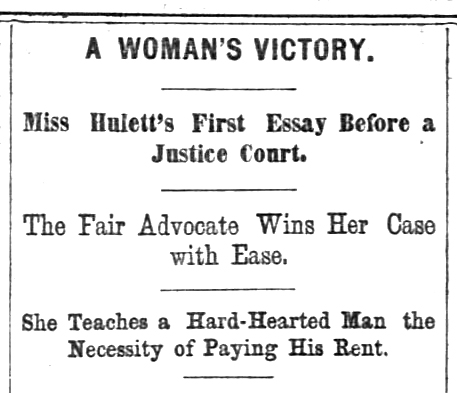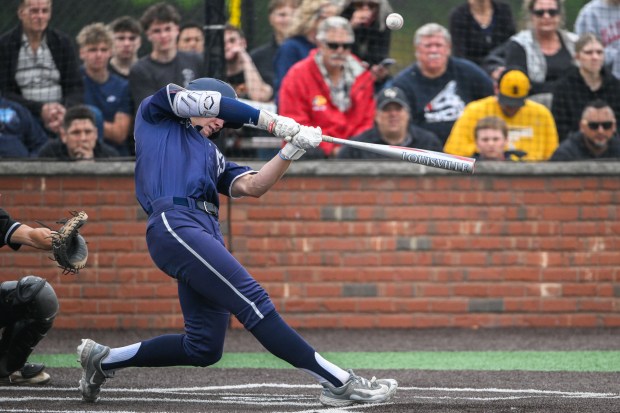Here’s a look back at what happened in the Chicago area on June 4, according to the Tribune’s archives.
Is an important event missing from this date? Email us.
Weather records (from the National Weather Service, Chicago)
- High temperature: 97 degrees (1977)
- Low temperature: 35 degrees (1945)
- Precipitation: 2.28 inches (2002)
- Snowfall: Trace (1905)
1873: Alta May Hulett —then just 19 years old — became the first woman admitted to the Illinois bar and allowed to practice law in Illinois, according to the Illinois Supreme Court.
The Chicago-based attorney received the first judgment in her client’s favor on June 21, 1873. The case involved “nothing very tragic nor pathetic,” the Tribune reported.
“It was not a case of a beautiful heiress seeking a divorce from a coal-heaver, or was there a widow and five children, — two at the breast, — and all staying, before the Court; nor was it a case in which a brutal husband broke all the china on the head of an afflicted, but affectionate, wife; it was not any of these; there was not a tear or a sigh, or a drop of blood, or a particle of sentiment, or a taste of lager in it from Alpha to Omega, — nothing to excite the sympathies or make the blood course faster, or the heart beat quicker, or the hair to stand on end. No, Frichka vs. Durkin was an exceedingly quiet case indeed.”
“Washerwoman” Martha Frichka rented space in her home on Madison Street to Mr. Durkin (no first name was given), who was a butcher. But when Durkin’s partner left his business, he refused to pay rent. His reason: Why should a butcher pay money to a washerwoman?
After Hulett spoke just 10 minutes at the start of the case and another 15 minutes during closing arguments, the jury of six men disappeared for just two minutes before returning with a verdict for the washerwoman.
The Tribune praised Hulett’s work in the courtroom but also noted the venue itself could use a good tidying-up.
“Now they are nothing but roofed spittoons. The floors are flooded with tobacco juice, and an odor of stale smoke, interspersed by beer and whisky fumes.”
Hulett died of consumption (tuberculosis) just four years later. The Chicago Bar Association’s award for outstanding lawyer is named in her honor.
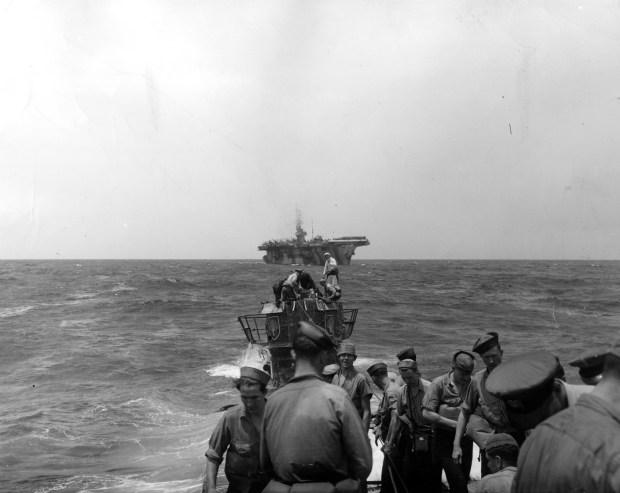
1944: Germany’s U-505 submarine was taken by American Task Group 22.3, near Africa. It was the first time since the 19th century the U.S. Navy had captured an enemy vessel at sea.
A decade later, the sub became a major exhibit at Chicago’s Museum of Science and Industry.
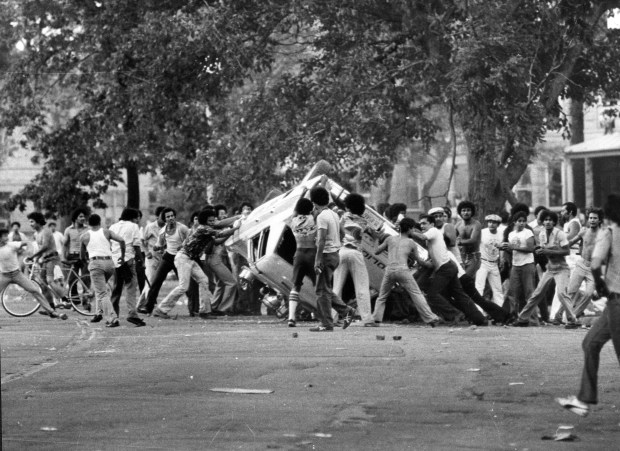
1977: At least two people were killed and 15 Chicago police officers were hurt when a Puerto Rican celebration in Humboldt Park turned into a two-day riot along Division Street. Witnesses said trouble broke out after a Latin Kings street gang member was shot in the leg by a rival.
When police tried to close the park, crowds hurled bricks, bottles, rocks, sticks, chairs and other debris, the Tribune reported.
It was the worst violence in the area since 1966, when seven people were shot, dozens were hurt and 37 arrested during two nights of rioting.
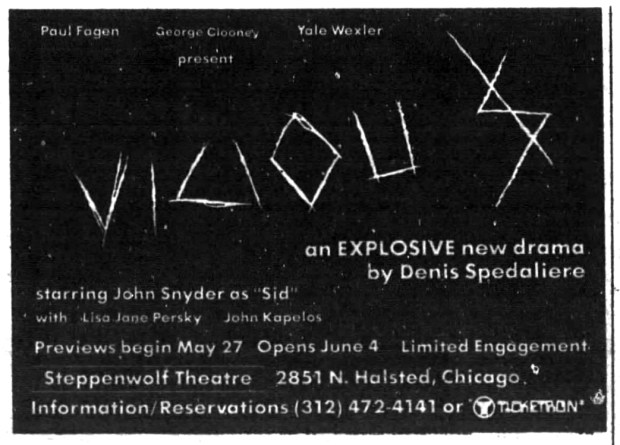
1986: “Vicious,” an independently produced play that reimagined what happened the night Sex Pistols bassist Sid Vicious murdered his girlfriend Nancy Spungen, premiered at Steppenwolf Theatre. Tribune critic Sid Smith panned the drama as “no way fascinating.” But Smith admired the “smooth, streetwise swagger” of a prostitute/dealer character named Champ, who was played by George Clooney.
Want more vintage Chicago?
Subscribe to the free Vintage Chicago Tribune newsletter, join our Chicagoland history Facebook group, stay current with Today in Chicago History and follow us on Instagram for more from Chicago’s past.
Have an idea for Vintage Chicago Tribune? Share it with Kori Rumore and Marianne Mather at krumore@chicagotribune.com and mmather@chicagotribune.com


